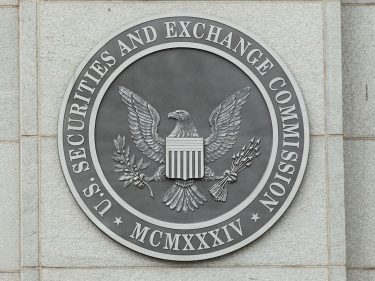Trump just made CBDCs an election issue. Connecting them to China is his next likely move
Most Americans have never heard of central bank digital currencies, or CBDCs, but that may be about to change in a big way.
Donald Trump, who is on the verge of sealing the Republican Party’s nomination as president in the New Hampshire primary Tuesday, has vowed to “never allow the creation of a central bank digital currency,”
“This would be a dangerous threat to freedom, and I will stop it from coming to America,” Trump said on the campaign trail in the Granite State last week.
“Such a currency would give the federal government absolute control over your money. They could take your money, and you wouldn’t even know it was gone.”
Spending patterns
He is the latest in a long line of Republicans, including Ron DeSantis, the Florida governor and former presidential candidate, to denounce the idea of a digital version of the dollar.
But in Trump’s hands the issue may not only become a hot button election year issue — it could also play into his long-running criticism of China as the US’ top strategic adversary.
‘If the US doesn’t establish clear CBDC policies, other countries will.’
Dele Atanda, metaMe
China has put enormous resources to work in piloting a digital yuan.
In October last year, Lu Lei, deputy administrator of the State Administration of Foreign Exchange, appeared to endorse the ability of CBDCs to track and analyse consumers’ usage habits.
Indeed, Chinese political leaders have already floated the idea of adding “programmable features” to the digital yuan.
The nation’s “social credit system,” which is designed to measure the trustworthiness of citizens and businesses, has become a byword for dystopian government surveillance, even though the extent to which it tracks individuals is often overstated.
Throw in a way to monitor money and you have a potentially even more Orwellian system, critics say.
The Federal Reserve, the European Central Bank, and other central banks have sought to reassure consumers they are studying the application of blockchain technology to make the distribution of money more efficient.
Christine Lagarde, the head of the ECB, has said consumers’ privacy will be protected if any digital form of the euro is introduced.
Yet sceptics fear CBDCs would enable central banks to surveil the spending patterns of consumers and violate their privacy. It may also be possible to give money an expiration date or a limit on what it can be spent on.
Government overreach
Trump isn’t entirely opposed to blockchain-based products. He’s sold NFTs of himself.
Yet it’s not entirely surprising he would assail CBDCs as a new manifestation of the “deep state.” It’s become a popular topic among conspiracy theorists worried about government overreach.
The Cato Institute, a libertarian think tank in Washington, said support for a digital dollar is low.
Around 53% of Republicans and 22% of Democrats oppose a CBDC, Nicholas Anthony, a Cato Institute policy analyst and a fellow at the Human Rights Foundation told DL News via email.
‘The main privacy risk of a CBDC is that it would provide the government with direct access to each citizen’s spending habits.’
Nicholas Anthony, Cato Institute
About half of the general public said that they still do not know enough about CBDCs to have an opinion, according to Cato.
“The main privacy risk of a CBDC is that it would provide the government with direct access to each citizen’s spending habits — habits that reveal a person’s relationships, profession, travel, religion, and more,” Anthony said.
US lagging
The US has been slow to adopt CBDCs compared to other nations.
As of November, 130 countries were exploring a CBDC, with 64 now in either the launch, pilot or development stage — including 19 of the G20 countries, according to the Atlantic Council.
“There’s a degree of inevitability due to the international competitive landscape,” said Dele Atanda, CEO of metaMe and chair of the Internet Foundation. “If the US doesn’t establish clear CBDC policies, other countries will.”
Opposition to CBDCs is hardly a fringe viewpoint in the US, where a seam of suspicion of the government runs through the cultural bedrock. Republicans who support smaller government and left-wing privacy activists converge in fears of CBDCs.
Congress weighs in
The Federal Reserve has issued research on CBDCs, but its officials say their reports are intended to foster discussion, not to recommend policy outcomes.
Michael Barr, the Fed’s vice chair of supervision, has said that the central bank would only proceed to develop a digital dollar if given clear instructions from Congress.
And Congress is unlikely to issue such instructions, particularly in the case of a Republican Congress and president.
Lawmakers have issued draft bills to block a CDBC. One of these, backed by Representative Tom Emmer, the House majority whip, has passed out of committee to the full House in a step toward becoming law.
And within the crypto community, others are also sounding the alarm. Atanda said the need for robust privacy protections in the development of digital currencies.
“I do believe that we need to bring the conversation about privacy front and centre to the CBDC debates. But I don’t take the view that you can stop this,” he said.
Cato’s Anthony counters that building in privacy safeguards is a bit of a non-starter.
“Although some people have tried to propose privacy policies, the best mitigation for the privacy risks created by a CBDC is not to issue CBDCs at all,” he told DL News.
Trump, it would appear, agrees.
Reach out to the authors at callan@dlnews.com and joanna@dlnews.com.




